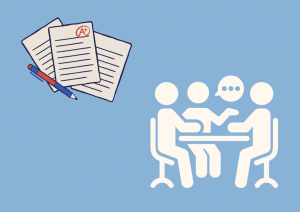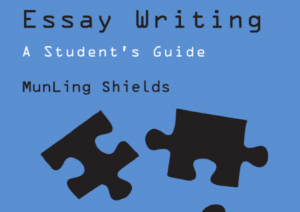
Essays are relatively short texts, but they can carry tons of information and require a lot of research. The type of essay can determine your approach to writing it, as well as its purpose.
In most cases, essays must develop arguments, analyze the topic, and provide evidence, but it depends on the type of essay.
While argumentative and persuasive essays require different points of view and arguments, personal essays require less research and a more individual approach.
Let’s break down a list of steps to help speed up your essay writing and make this process much easier!
Decide on the essay type

The type of essay is very important as you prepare to write it. Different types require different solutions. Let’s look at some options for essay types.
For and against essays

This is one of the three main kinds of essays. Here, in the introduction, you identify the problem you will argue about in the body. You can write why this issue is influential and where it comes from.
In the body, your task is to look at the concern from different angles, presenting all the arguments for and against it. Do not favor one point of view, but try to be objective.
You must walk in the shoes of both the proponents and the opponents. Do not give your personal opinion in the body of your essay, but only dry arguments.
Only in the conclusion can you summarize what you wrote above and express your personal opinion on the issue. Again, you should not be too emotional; a formal tone is welcome.
Opinion essay

This is another standard type of essay. Again, in the introduction, you outline the issue you want to address.
But unlike the for-and-against essay, in the body of the essay, you do not give arguments for and against, but express an opinion.
You are supposed to say what you think and justify it. Do not be unfounded – give arguments to support your opinion, and explain why you do not support other views on the problem.
Finally, state your position in the conclusion.
Problem and solution essays

This is the third type of essay we are going to analyze. In short, the paper should identify the issue at hand (in the introduction) and propose a solution (in the body).
You should provide arguments, examples, and justifications for your ideas. It is better to describe several solutions reasonably than to “dump” a dozen of your ideas without any evidence.
Finally, you can express your opinion about the problem and your position.
Brainstorm different topics

Often you already have a topic when you come up with writing. In other cases, you will have to choose a topic on your own.
This is a very important step because it will determine your research, the flow of your document, and how interesting it will be for your readers. Here are a few tips for this part:
- Make a list of your topic ideas. You will eliminate them later.
- Use mind maps or clustering to figure out which idea you like best.
- Research your favorite topics and select the one you think is most intriguing.
Do your research

It’s time to do the research now that you have a topic and a type of essay. You should set a time limit for this.
Do some research online, in books and magazines, or at the library. If it is appropriate for your case, you can also conduct interviews or send out surveys.
Make a plan

This next step is the most essential for writing an article. It can help you better organize your information, create an excellent essay flow, and keep you from making mistakes.
Think of it as the skeleton of your essay, like writers from the writing service Trust My Paper do. It doesn’t have to be well-written or look impressive.
After all, you’re not submitting this piece with your assignment. Here are some tips for your essay structure:
- Write your topic at the top and then your thesis statement.
- Create a topic sentence or several prompts for each of the main paragraphs.
- Determine which piece of data relates to which paragraph.
- Think about the transitions between paragraphs.
Break it down

The enormity of an entire essay can be overwhelming and contribute to writer’s block.
Instead, divide it into smaller, manageable pieces. Set achievable goals for each writing session and focus on a specific section or idea.
By dividing the workload, you can reduce the pressure and gain a sense of accomplishment with each milestone you reach.
Creation of a specific ritual

Rituals have a way of signaling to our brains that it’s time to get into the creative zone. Designate a specific time and place for your writing practice.
Clean up your workspace, light a candle, play soft instrumental music, or sip on a favorite beverage. These small rituals create a sense of familiarity and comfort that nudges your mind into focused creativity.
Discuss your essay ideas with other writers

If your long-suffering head does not appear any new and fresh ideas – discuss the topic with other people. An outside view is always helpful.
If you are preparing in a group, your instructor should initiate discussions in preparation for essays, where you can exchange opinions with your classmates.
And in individual classes, the instructor’s job is to discuss the assignment with you to help with the choice of arguments and structure.
Discuss essay topics with friends, colleagues, and other writers. Ask them to express their opinions, highlight advantages and disadvantages, and suggest solutions.
Memorize, you should write down all your thoughts, and then choose the most successful ones that you use in your essay.
Visualize the final version of your writing

Typically, we perceive information visually much better than in other possible ways.
If the topic seems abstract or far from reality, try to imagine this situation: real people facing this or that problem, putting themselves in that situation.
Imagine people going to university, cars polluting the air, big budgets being invested in space exploration, juries passing verdicts, kids playing games on cell phones, and so on.
It’s much easier to examine something when you relate to it. Use your imagination and try to immerse yourself in the situation. Don’t be afraid to generate ideas; select the most relevant ones for your task.
Revise the essay

Finally, you need to spend some time making the essay look and sound good. You’ll have to:
- Read the draft several times and make any necessary changes.
- Edit first, then proofread, as you may make more mistakes when editing content.
- Make sure there are transitions between different facts, points, and ideas.
- Check for necessary formatting and make sure you’ve done it.
Common essay writing mistakes

Sometimes a very interesting essay topic can be ruined by mistakes in the text. You can avoid this by learning about common mistakes:
- Grammar and punctuation. They leave an unpleasant impression on the essay as a whole since a well-written text is always easy to read, and you can fully understand its meaning.
- Content logic. Arguments should support the author’s thesis, not refute it.
- Repetition. Do not repeat the same idea numerous times as the readers will consider that. However, explain logically what you have already said if you want to return to it.
- Plagiarism. An essay is a personal experience, a creative process that cannot be copied. You can quote what other people have written, but you need to acknowledge them.
- The flow of thought. Think, and allow yourself to philosophize, but do not forget to provide specific facts and data.
- Humor. Jokes should be moderated and not hurt people’s feelings. The most successful joke is a joke about yourself.
- Avoid sensitive topics. Don’t write about religion, politics, racism, or other controversial topics if they are not relevant to your writing task.
- Using inappropriate or obscene language. Jargon, slang, and especially obscenities are prohibited in this genre.
- Personal information. Age, medical conditions, and marital status are of no interest.
To sum up

Remember, writer’s block is merely a temporary hurdle on the path of content creation.
By approaching it with compassion, embracing inspiration, and utilizing these strategies, you can navigate through the creative abyss and unlock the full potential of your essay-writing process.
Trust in your innate ability to express yourself; soon, your words will flow effortlessly onto the page, leaving writer’s block far behind.
